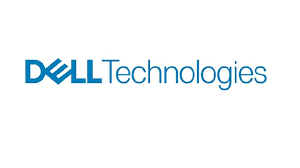How Dell Technologies Is Going Public Without an IPO

Back in 2013, Dell Technologies went private in a $ 24 billion leveraged buyout led by founder Michael Dell and private equity firm Silver Lake Partners. “Dell’s transformation is well under way, but we recognize it will still take more time, investment and patience,” he wrote to his employees at the time. Over the prior five years, the company’s stock price had fallen 31%, as slipping personal computer sales, the mobile computing revolution, and the beginning of the cloud computing revolution all ate into sales and profits.
On Monday, the company announced that after spending the next five years off the stock market, the recovery was largely in hand and it would go public once again. Dell is plotting a complex return, however, that’s not quite an initial public offering and leans heavily on its 2017 acquisition of EMC and its software unit, VMWare.
How will Dell go public without an IPO?
When Dell acquired EMC for $ 67 billion two years ago, it also acquired EMC’s roughly 80% controlling stake in VMware. The remaining ownership of VMWare (vmw) was already publicly traded under the symbol “VMW.” Carrying a massive debt burden from the acquisition, Dell decided to pay EMC shareholders partly in cash and partly with a new tracking stock that—at least on paper—represented the controlling stake in VMWare. The tracking stock, under the symbol “DVMT,” largely met that goal and has traded in close correlation with VMware’s own stock. Now Dell is proposing to buy out owners of the tracking stock with a combination of cash and a newly issued “C” class of stock in Dell itself. That new stock will trade on the New York Stock Exchange, making Dell again a public company.
How much will owners of Dell’s VMWare tracking stock get paid?
Owners can choose to take $ 109 in cash or 1.3665 shares of the new Dell “C” class of stock. The tracking stock closed at $ 84.58 on Friday, so the offer represents a 29% premium for the cash option and more than double what the tracking stock was worth when Dell first handed it out. The value for those who choose the almost 1.4 shares of Dell “C” stock will depend on the price of those shares once trading begins.
So if Dell will again have a publicly traded stock, why isn’t this an IPO?
An IPO, or initial public offering, is more that just a company listing its stock for public trading. The “offering” is the sale of shares to the public to raise money and either pay off prior investors or bolster the company’s coffers. Dell isn’t selling any new shares or raising any money—it’s just exchanging one kind of stock for another. Likewise, Spotify’s (spot) deal to publicly list its stock in April didn’t qualify as an IPO, because the company just let existing shareholders start trading their stock on an exchange. The music streaming leader didn’t sell any new shares or raise any money.
How much of Dell will holders of the new “C” class of stock own?
Dell says holders of the tracking stock will end up owning 21% to 31% of the company after the exchange, depending on how many people choose cash or stock (only $ 9 billion in cash will be available to pay off about $ 22 billion worth of tracking stock, so not everyone can take the cash option). Michael Dell and his private equity partners will retain substantial control of the company, however, because the class of stock they own has greater voting rights than the new class “C” shares.
How has Dell been doing lately?
Part of the reason Dell may be going public now is that the company is doing much better than when it went private. Revenue in its most recently completed quarter rose 19% to $ 21.4 billion while the company’s net loss fell by 55% to $ 500 million. Adjusted earnings before interest, taxes, depreciation, and amortization rose 33% to $ 2.4 billion.
